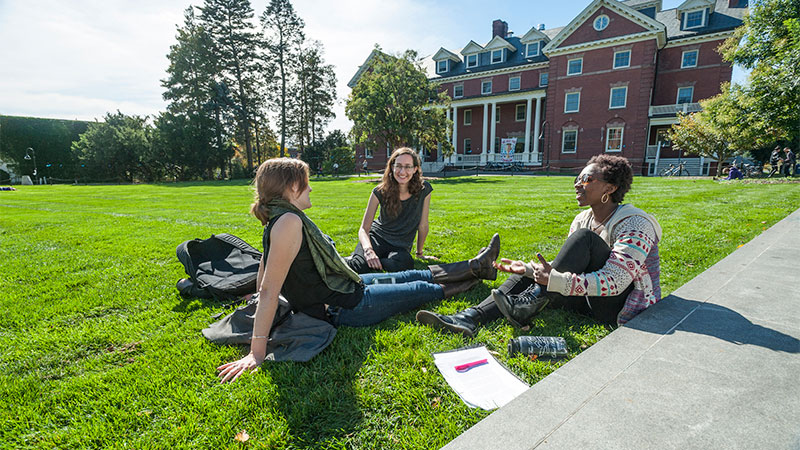“Being able to experience those moments with students is a sign to me that what we humanities folks do still matters in a concrete and material way,” said Pineda, who in 2022 was named the Phyllis Rappaport ’68 New Century Term Professor at Smith. “It still can actually shape somebody’s understanding of themselves and the world, which in turn might shape what they decide to do in the world.”
She received her doctorate in political science from Yale University in 2015 and arrived at Smith in the fall of 2017 after spending two years as a post-doctoral fellow at the University of Chicago. Within the broader realm of political science is Pineda’s sphere – political philosophy or political theory – and at Smith she teaches courses in the history of political thought, democratic theory, social movements, and American political thought.
“There’s a bit of overlap with my colleagues in the philosophy departments,” she said. “For example, in my work on civil disobedience and protest, part of my approach is to try to understand the context of usage for that term. How do people make moral judgments about it? I ask those kinds of questions, rather than those that a political scientist might ask, such as what makes a protest successful.
“I think students are keen to understand the world of activism and social movements to understand what’s going on and make normative or political judgments. I think they’re hungry for that kind of study.”
The Rappaport New Century Term Professorship, named for 1968 Smith alum and Rappaport Foundation Chairperson Phyllis Rappaport, is awarded to a trailblazing junior faculty member to support innovative research and curricular development for a term of three to four years.
Pineda was informed of the honor in a call from then-Smith President Kathy McCartney soon after the 2021 publication of Pineda’s first book, Seeing Like an Activist: Civil Disobedience & the Civil Rights Movement, which earned the Foundations of Political Theory Best First Book Prize from the American Political Science Association.




